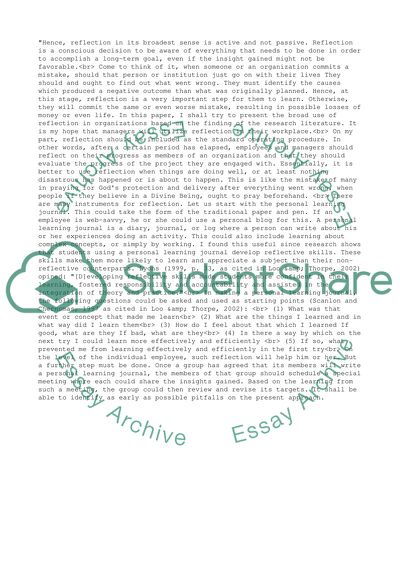Cite this document
(Reflection as a Core Process in Organisational Learning Essay, n.d.)
Reflection as a Core Process in Organisational Learning Essay. Retrieved from https://studentshare.org/management/1525541-the-reflective-manager
Reflection as a Core Process in Organisational Learning Essay. Retrieved from https://studentshare.org/management/1525541-the-reflective-manager
(Reflection As a Core Process in Organisational Learning Essay)
Reflection As a Core Process in Organisational Learning Essay. https://studentshare.org/management/1525541-the-reflective-manager.
Reflection As a Core Process in Organisational Learning Essay. https://studentshare.org/management/1525541-the-reflective-manager.
“Reflection As a Core Process in Organisational Learning Essay”, n.d. https://studentshare.org/management/1525541-the-reflective-manager.


